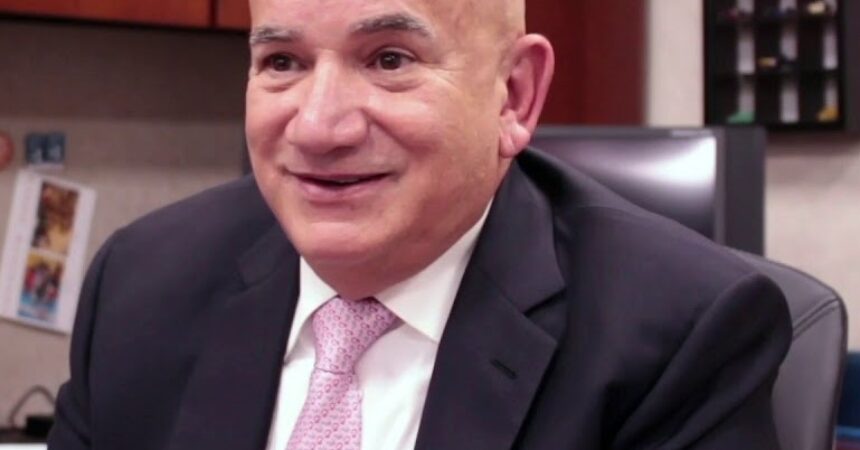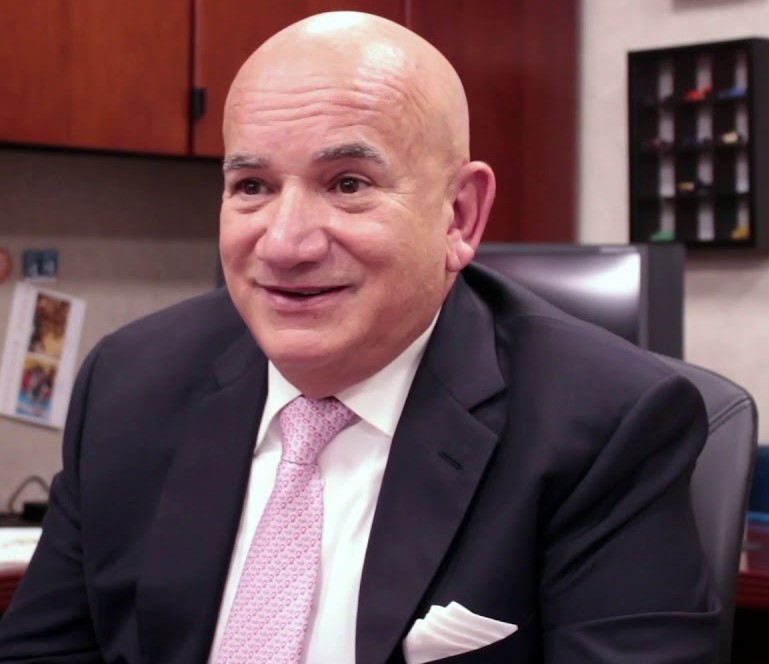
Hospitals face staffing worries amid COVID-19 surge

Miami Chamber photo
By Christine Sexton
News Service of Florida
As Florida hospitals treat record numbers of COVID-19 patients, some of the state’s biggest facilities are worried they might not have enough staff needed to provide care.
Twelve Florida hospitals reported having a “critical staffing shortage” as of last Monday, and another 15 hospitals reported that they expected critical shortages within the week, according to federal data. Meanwhile, 167 hospitals reported not having staffing shortages, and 164 reported that they didn’t anticipate shortages in the next week.
Maintained by the U.S. Department of Health and Human Services, the information does not identify hospitals by name.
But the top executive at one of the state’s largest hospitals said last Wednesday he expects to have staffing shortages in the next week. During an online news conference with Gov. Ron DeSantis and other hospital executives from across the state, Jackson Memorial Hospital Chief Executive Officer Carlos Migoya said staffing has become a “huge” challenge for his Miami facility.
Nurses who once were part of the hospital’s staff are leaving and taking jobs with travel-staffing companies, where they can earn two or three times the pay, Migoya said.
“That is a real big challenge right now we are dealing with,” he told the governor. “And the only thing we can hope for is this (COVID-19) surge that is going on really peaks out here pretty soon and we get back to a more normal environment.”
The staffing concerns come as the state deals with dramatic increases in hospitalizations because of a surge in COVID-19 infections and deaths stemming from the delta variant of the coronavirus.
Florida reported 16,935 new cases of COVID-19 last Tuesday, with 140 deaths. During the past week, Florida averaged 17,756 new infections and 68 deaths a day, according to Centers for Disease and Control Prevention data updated last Wednesday.
The number of hospitalizations, meanwhile, climbed to 12,408. About 87 percent of the 5,801 intensive-care unit beds in the state were occupied by patients, with 39 percent being used by people with COVID-19.
Migoya said he has discussed staffing concerns with DeSantis and state Agency for Health Care Administration Secretary Simone Marstiller, who also took part in the news conference.
The results of a Florida Hospital Association member poll painted a potentially darker staffing picture than the federal data. Completed last Monday, the poll showed that 60 percent of facilities expected a “critical staffing shortage” in the next seven days. The association’s poll included responses from hospitals representing 82 percent of the state’s acute-care beds.
Florida law does not include minimum nurse staffing requirements. But state rules make clear that facilities must have enough nurses on staff to sufficiently ensure “immediate availability of a registered nurse for bedside care of any patient when needed, to assure prompt recognition of an untoward change in a patient’s condition and to facilitate appropriate intervention by nursing, medical or other hospital staff members.”
Marstiller said she is aware of challenges that hospitals are facing. Marstiller said her agency — which regulates hospitals and nursing homes, among other providers — is “expediting and prioritizing” the background checks hospitals are required to run for staff.
“All we need to know is who they are and where you need them and we will expedite those background checks as quickly as possible,” Martsillter said.
DeSantis and the hospital executives also used last Wednesday’s news conference to encourage people who test positive for the virus to ask health-care providers about monoclonal antibody treatments that have been developed by Regeneron and Eli Lilly.







